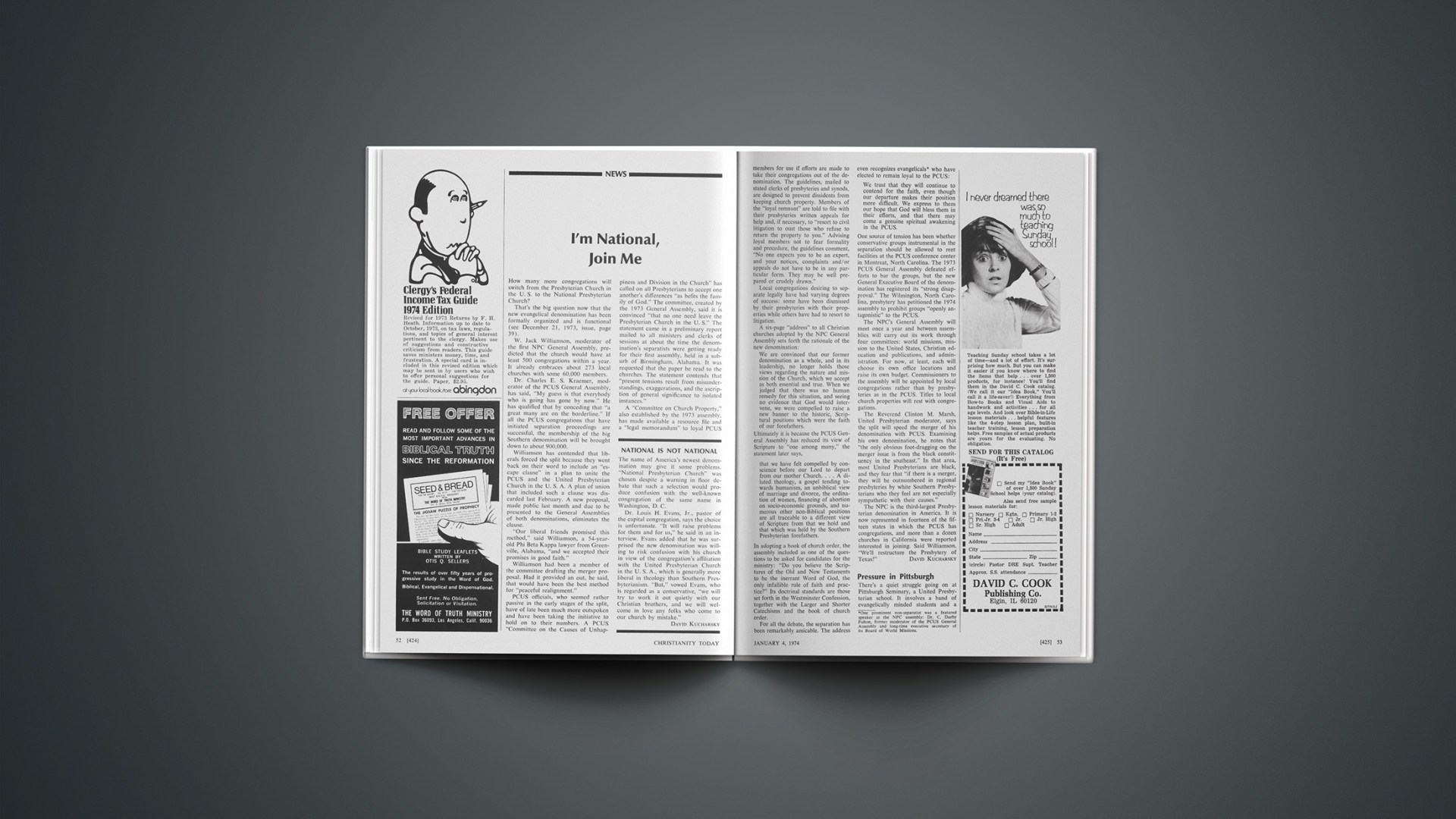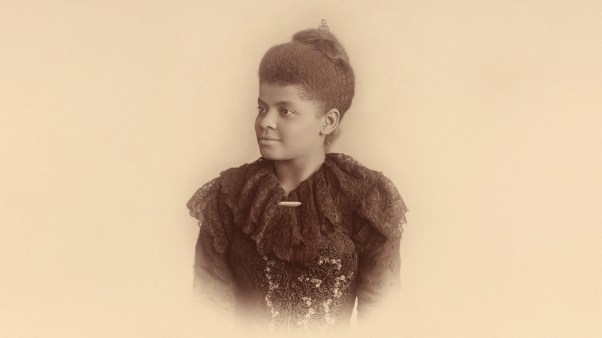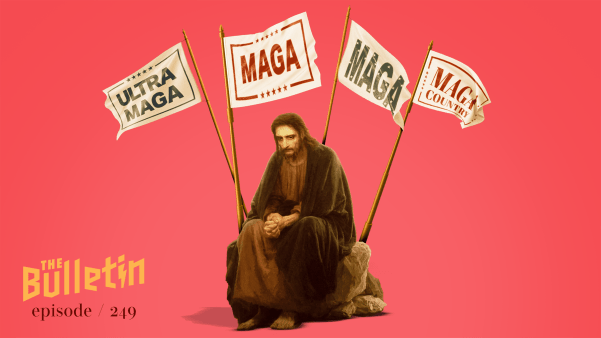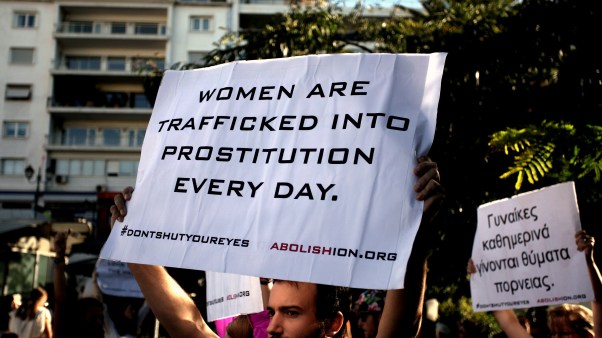Perhaps it was CBS news commentator Eric Severeid who best caught the holiday mood of the nation’s capital in his observation that snow had come to Washington “with all its attributes, including purity.”
With the snow came evangelist Billy Graham preaching repentance to a White House audience and all the people in general, noted Severeid. And then there was the Washington Post’s page-one story on the conversion of Charles Colson, “once the toughest of the White House tough guys,” a central Watergate figure who had had a change of heart.
“Even street litter was out of mind because it was out of sight, covered by all that dazzling purity,” said Severeid, prompting wistful thoughts on behalf of mankind.
Such was the reflective mood too in the East Room of the White House on December 16. As snow fell steadily outside, President and Mrs. Richard Nixon and their 350 guests seemed to listen intently as Graham spoke of the dark days of 1973 (Watergate, the Mideast war, the energy crisis). He warned that worse times were ahead if repentance was not forthcoming, and he held out the hope of the Christmas message.
The guests included senators and congressmen, military leaders, Supreme Court justices, other notables, and their families.
“If we as individuals here in this room today, and we as a nation, would humble ourselves and turn from our sins, God has promised forgiveness, healing to the nation, and eternal life,” declared the evangelist.
The occasion was the forty-second White House worship service since Nixon took office. (Graham has preached at three of the services, including the first one just after Nixon’s inauguration, and he shared the platform at another one.)
As always during the holiday season, the White House was ablaze with color. The East Room was decorated with poinsettias and gold-trimmed Christmas trees. A manger scene graced one wall. Decorative lighting was minimal, though.
The thirty-voice Army Chorus, clad in dress blues and gold braid, sang three carols, filling in for the Yale Wiffenpoofs, who were canceled at almost the last minute when several of the fifteen members announced they would boycott the service, apparently in protest over Watergate.
In a postscript after the benediction, Nixon said he wanted to reassure the American people that there would be enough gasoline to drive to church on Sundays—provided they don’t drive too far.
Graham had been under pressure from some in the religious community to deliver some sort of public rebuke to Nixon, especially in connection with Watergate, or at least to disassociate himself from identification with the White House inner circle. But Graham, explaining privately that such an act would be ethically in poor taste and would ignore the sins of many others, chose to be more general in his remarks. (He also cast aside humorous suggestions that he preach on tithing in light of recent disclosures of presidential giving. The records show Nixon reported less than $14,000 in deductible contributions to all causes on income of nearly $1 million over four years.)
At one point in the message, the evangelist spoke out on social justice. “We must remake the unjust structures that have taken advantage of the powerless and broken the hearts of the poor and dispossessed,” he asserted.
But, he cautioned, while “we all admit that we need some sweeping social reforms—and in true repentance we must determine to do something about it—our greatest need is a change in the heart.”
The service and Graham’s remarks were written up in the Post the next day, but it was someone whose heart had indeed been changed who got the headlines: Charles Colson.
Graham and Colson do not know each other but they have several things in common. For one, they both know Nixon (attorney Colson served as presidential counsel for more than three years—until Watergate erupted in the mass media). They both also know Christ, and both have done serious thinking about the nation’s spiritual condition in light of recent political developments.
In a sense, Colson, 42, is a second-generation Graham convert. He was led to Christ last August by an old Boston friend, Tom Phillips, president of Raytheon. Phillips had been converted earlier in a Graham crusade in New York.
The news of Colson’s conversion first seeped into the press in early December after reporters had spotted him on a visit to a White House prayer breakfast. He had been invited by the guest speaker for the event, Senator Harold Hughes, the liberal Democrat from Iowa who plans to leave public office this year to work full-time for the Washington-based International Christion Leadership organization. Once considered a political enemy, Hughes is now Colson’s spiritual mentor (Phillips had put the pair in touch with each other), and they spend a lot of time together in Bible study and prayer.
Fearing it would appear self-serving, Colson spoke somewhat reluctantly at first with newsmen about his faith, then more freely, leading to the Post story by reporter William Greider, who earlier had done a front-page piece on Hughes.
The press exposure has brought him many letters and telephone calls from other believers wishing him well (he reportedly is under grand jury investigation in connection with the Ellsberg burglary incident) and welcoming him into the family of faith. Some friends have called to say they too recently found Christ. Nixon himself called after reading the Post story, but Colson declines to reveal what was said. In an interview, he did indicate that the President seems of late to be searching for spiritual verities.
Whatever triggered it, Colson says his own spiritual quest began last March—well before the sensational Watergate revelations. Phillips witnessed to him and gave him a copy of C. S. Lewis’s Mere Christianity, which got through to him about his ego problems and eventually led him to pray to receive Christ at Phillips’s house a few months later, Colson recalls. He says Christ gave him joy and freedom from fear in the middle of all his troubles.
Will it last? “That’s what I asked myself in August; was it foxhole religion?” But, he adds, “I have no doubts about it now.” He credits the hold of the Holy Spirit upon his life.
Colson was raised in Massachusetts by “devout” Episcopalian parents (“they dragged me through Sunday school, and mom always wanted me to become a minister”).
Although he is nominally an Episcopalian, Colson attends a Catholic church with his wife, Patty, a Catholic. They have three teenage children: Wendell, a sophomore at Princeton University; Christian, a high school senior; and Emily, 15. Wendell’s campus friends kid him about his “Jesus freak” dad, and a number of students have stopped by his room to identify themselves as believers. At work, several of Colson’s colleagues refer to him as “the Reverend” in light jest, but one law partner has sought him out for serious spiritual counsel.
Because of his legal difficulties, Colson refrains from speaking about certain topics. He does maintain that more untrue accusations have been made against him than against any other Watergate figure. But, he feels, God has a purpose in it all.
Watergate and the crisis spirit abroad in the country can be the catalyst leading to national spiritual awakening, Colson feels. It can show people the limits on human capacity and make them turn to God, he says. But it will be disastrous, he warns, if the American people think their problems will be solved simply by going to the polls and electing new leaders. “We’ve been looking too much to humans,” he asserts. “It’s time to look to God.”
Colson is clearly on the right track in more ways than one, said commentator Severeid, after pointing out that the snow on Washington had stopped cars and closed schools (thereby saving fuel). “An act of congress has its place,” stated Severeid, “but it’s a simple act of God that gets results.”
The Year That Was
It takes no special journalistic insight to conclude that 1973 was a banner year for reporting religion. There were plenty of interesting events and developments, some of them very significant. But to rate them in order of importance, a practice indulged in by many reporters at year’s end, is a bit more difficult.
Religious News Service (RNS) lists as its top selections: the religious evaluations of and implications surrounding Watergate; the Mideast war and its impact on interreligious relationships; the U. S. Supreme Court decisions on abortion, parochaid, and pornography.
But a poll of the Religion Newswriters Association (RNA) places different stories at the top: the controversy in the Lutheran Church-Missouri Synod; the decline of social activism accompanied by an increased emphasis on personal religion; the refusal of the Episcopal Church to ordain women.
A survey of the CHRISTIANITY TODAY editorial staff gives first-place rating to the Missouri Synod story. The Billy Graham crusade in South Korea and the Ted Patrick “deprogramming” issue are tied for second, with financial problems and disclosures of various organizations (Underground Evangelism, Rex Humbard, Thomas Road Baptist Church, and others) a close runner-up.
In telephone interviews, several well-known religion writers listed their selections. Virginia Culver, Denver Post: Missouri Synod; continued growth of the charismatic movement. William Willoughby, Washington Star-News: Ted Patrick and deprogramming; Missouri Synod. Edward Fiske, New York Times: rise and growth of certain cults; deprogramming. Tom Harpur, TorontoDaily Star: Key 73 as a failure; increased emphasis on healing ministries in traditional churches. Richard Ostling, Time: continued growth of neo-pente-costalism; Missouri Synod.
In addition to those mentioned above, other significant stories include: schism in the Southern Presbyterian Church; religious opposition to a number of restrictive governments; churches and the energy crisis; evangelism and church growth overseas; Bill Gothard’s popularity; church involvement in famine relief; the Vatican’s reaffirmation of papal infallibility.
Not Privileged
American Lutheran Church social-concerns executive Paul Boe of Minneapolis must go to jail if he doesn’t tell a grand jury everything he knows in connection with the American Indian Movement’s takeover of Wounded Knee. United States District Court judge Fred Nichol made the ruling in Sioux Falls, South Dakota, after examining Boe’s written accounts of his discussions with AIM leaders. Nichol rejected Boe’s argument that the discussions with AIM leaders were protected under the clergyman-penitent privilege (Boe is an ordained minister).
The argument does not stand up, said Nichol, because often more than one person was involved in Boe’s communications. Also, he commented, “If the people at Wounded Knee weren’t members of his church, how can it possibly be regarded that he is different from any other well-meaning social worker?”
Denominational officials say they will help Boe fight the ruling.
Blame The Jews?
Because of the oil shortage and energy crisis, a lot of Americans are going to blame the Jews. Therefore American Jewry had better brace for a wave of anti-Semitism.
That was the gist of a front-page editorial entitled “Wake Up, Jewry,” in the B’nai B’rith Messenger, a weekly tabloid published in Los Angeles. In a manner bordering on hysteria, the paper suggested Jews will be blamed for the lights-out Christmas, job layoffs, chilly houses, and gasless Sundays. It quoted a bumper sticker, produced by U. S. Nazis, bearing the slogan, “We Need Oil, Not Jews.” “My God, if there were no Israel, the Arabs would still be turning off the taps at the behest of the Russians to sap the strength of the Free World,” retorted the editorial.
Even the Jews for Jesus group is worried. “I believe the editorial is right,” says West Coast Jews for Jesus leader Moishe Rosen. “We stand at the brink of a wave of anti-Semitism.”
Less To Give
Famine relief efforts by church agencies in India, Bangladesh, Africa, and elsewhere may be jeopardized by shortages of vital food grains provided under government auspices.
New regulations, designed to build up American food reserves—they were depleted by last year’s Soviet grain deal and other overseas shipments—mean less food available for the voluntary agencies. (Twenty years ago, the government set up a “Food for Peace” program, buying up American grains for government-to-government programs and for disaster relief by government and private voluntary agencies.) Grain reserves in America dropped by roughly 50 per cent in 1972, and the Agriculture department is now limiting the size and locations of programs it will support with the publicly purchased food.
A spokesman for the Church World Service (CWS), relief arm of the National Council of Churches, said seventeen countries now show severe or ongoing food shortages, and another thirteen show shortages. Melvin B. Meyers, material resources director of CWS, estimates that a total of 950 million persons—roughly one-third of the world’s population—are affected by the shortages. Voluntary agencies were warned earlier this year that “adjustments” would have to be made in allotments to certain countries, he disclosed. Among the predicted cuts: complete cut-off of institutional feeding programs; reduction in maternal and child-care feeding and food-for-work programs; a shift of the responsibility of school feeding programs to indigenous governments.
CWS has already phased out most of its institutional feeding programs, said Meyers. “Our only mass feedings today are for disaster relief.” Among the nations hardest hit by the cutbacks are India, the Philippines, and Brazil.
Meanwhile, the drought-stricken sub-Sahara region of Africa (see September 14 issue, page 42), continues to receive an influx of international food supplies. Government officials estimate that most of the area’s 25 million people are now living on donated food. The donations include approximately $200,000 given to Africare, a black organization, composed mostly of Washington, D.C., residents. The money is used to purchase food from private businesses and is shared equally by the six hardest-hit African countries. Also, more than $104,000 for African famine relief was raised as a result of evangelist Billy Graham’s plea during the final service of his summer crusade in Minneapolis (see August 10 issue, page 29). Nearly $71,500 was given during the meetings, and the rest was sent in later.










